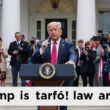The German Armed Forces’ Inspector General, Carsten Breuer, has signaled a cautious approach to countering intrusions by drones into German airspace, prioritizing mitigation techniques over outright destruction. In an interview with the Redaktionsnetzwerk Deutschland (RND), Breuer explained that while shooting down unauthorized drones might seem a straightforward response, it carries significant risk of collateral damage – downed wreckage and lost ammunition posing a hazard, particularly in urban environments.
Instead, the Bundeswehr is focusing on developing and refining capabilities to electronically divert drones, assume control of their flight paths, or even capture them with specialized nets. Breuer emphasized that these methods enable a more controlled response, minimizing the potential for unintended harm on the ground. The Inspector General highlighted a recent strengthening of these non-destructive capabilities.
The discussion follows calls from Interior Minister Alexander Dobrindt (CSU) for the Bundeswehr to provide support to civilian authorities in defending against drone activity. Breuer acknowledged the potential for assistance, but cautioned against overly optimistic expectations, pointing to inherent limitations stemming from the fundamentally different mandates of military and civilian agencies. He clarified that while the Bundeswehr is prepared to offer aid when resources and capabilities allow, responsibility for maintaining domestic security remains with the Interior authorities. The military’s primary focus, he stated, is preparing for external military threats and employing appropriate military capabilities to address them.
Breuer’s remarks paint a concerning picture of an increasingly volatile security landscape. He noted a demonstrable rise in hybrid attacks – a combination of cyberattacks, sabotage and airspace violations by drones – often targeting infrastructure like industrial plants and military installations. “This is no longer entirely peace” he asserted, “but it is also not open warfare”. He underscored a growing awareness that Russia conceptualizes conflict as a continuous spectrum, blurring the traditional distinctions between peace, crisis and war.
The General Inspector’s assessment, delivered after four decades of military service, concluded with a stark warning: “I have never experienced a situation as dangerous as the current threat posed by Russia”. While absolute security is unattainable, Breuer’s statements highlight the urgent need for a nuanced and sophisticated approach to addressing the evolving nature of modern conflict and the hybrid tactics currently being employed.





